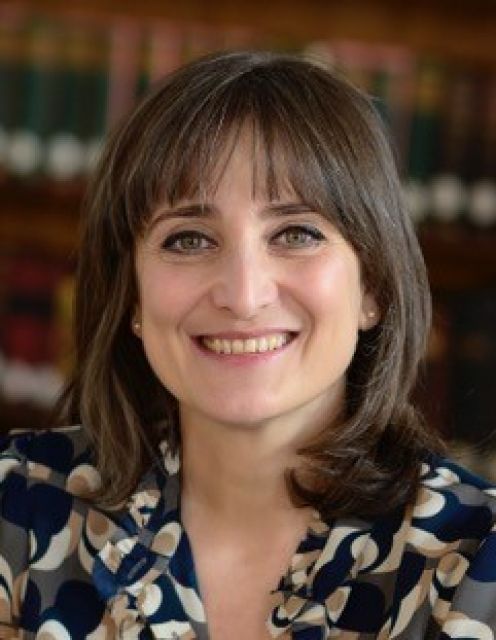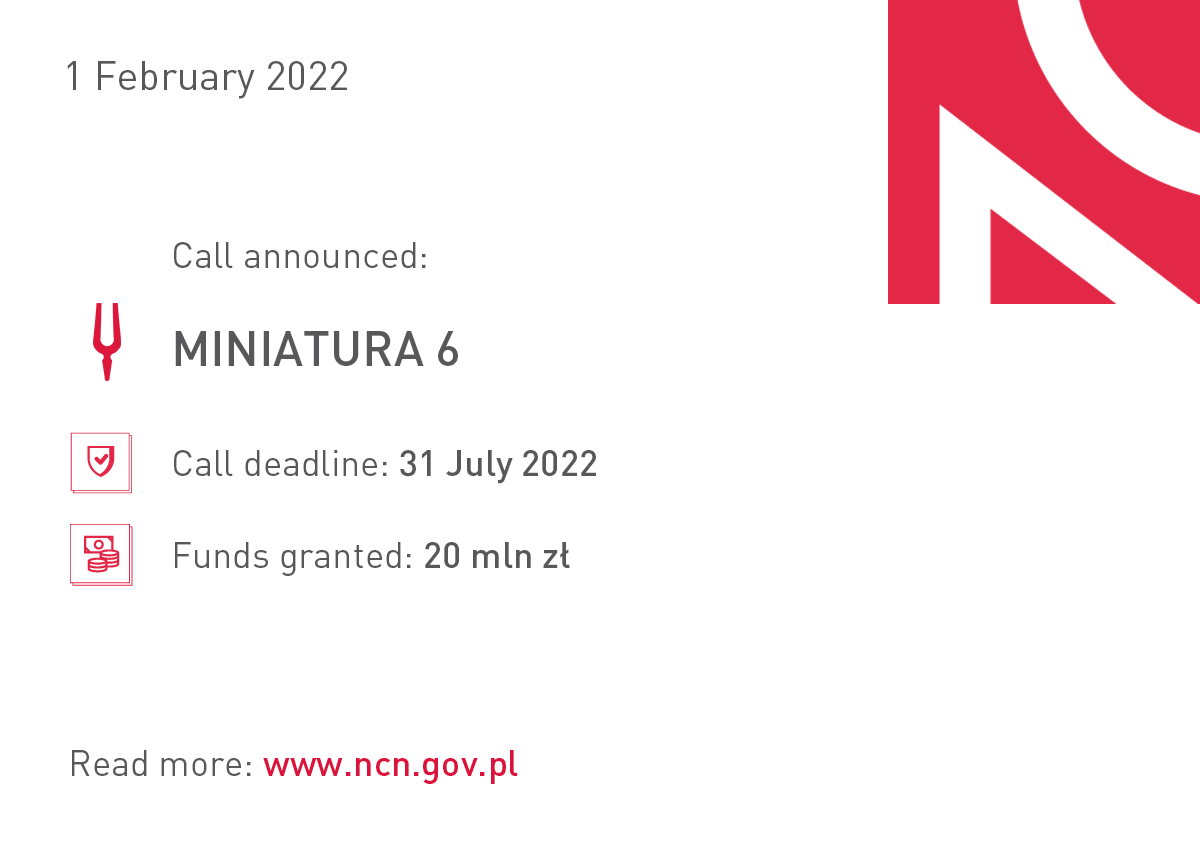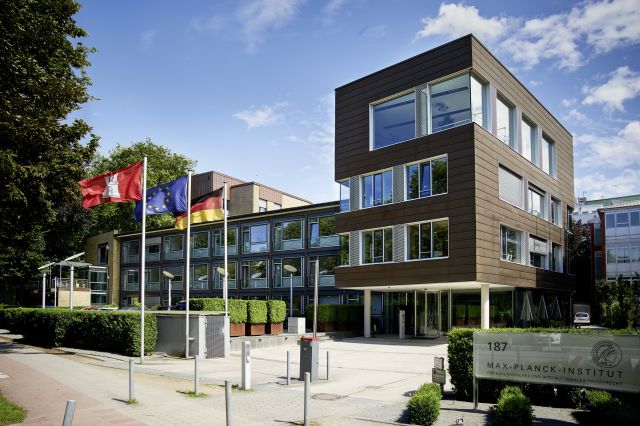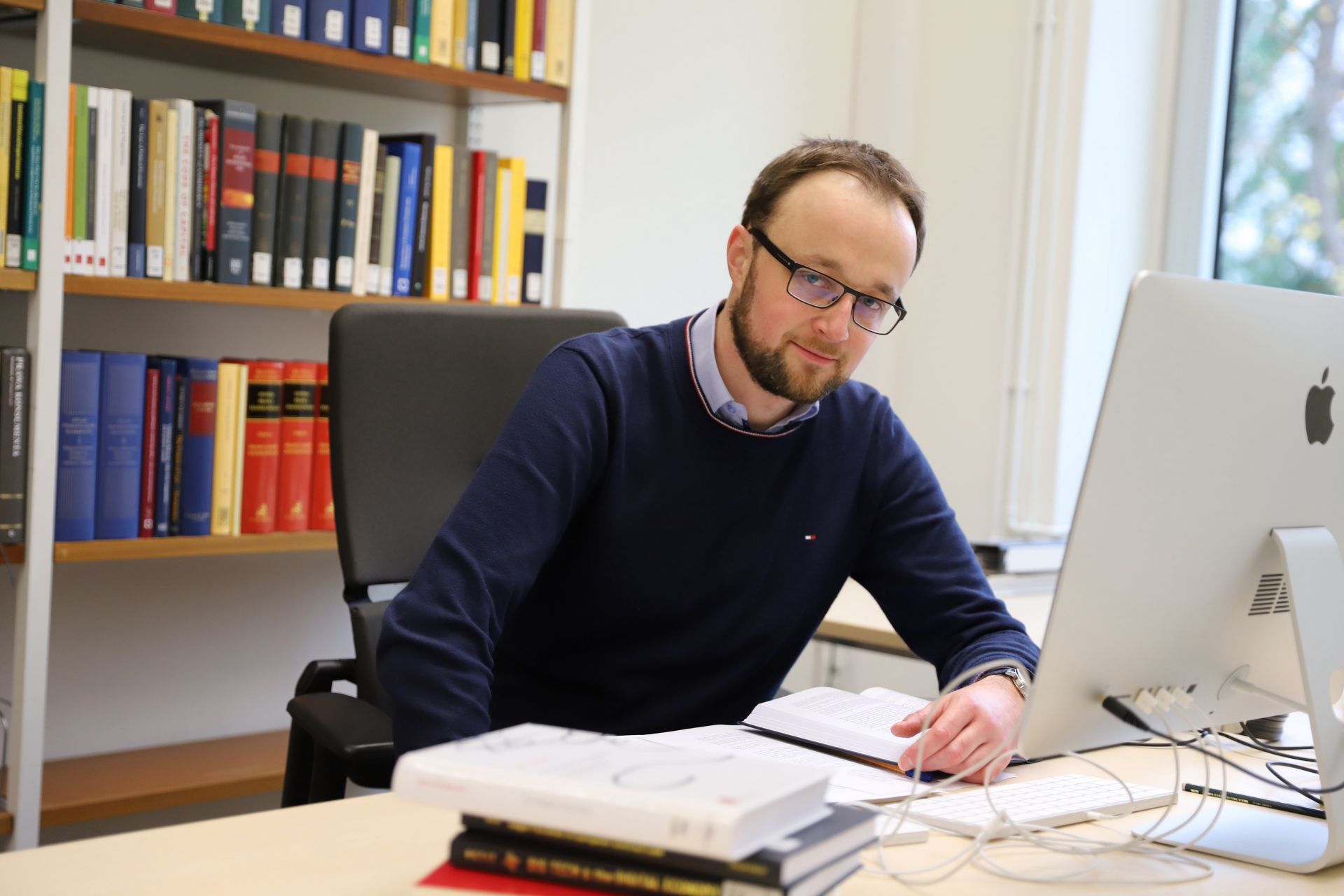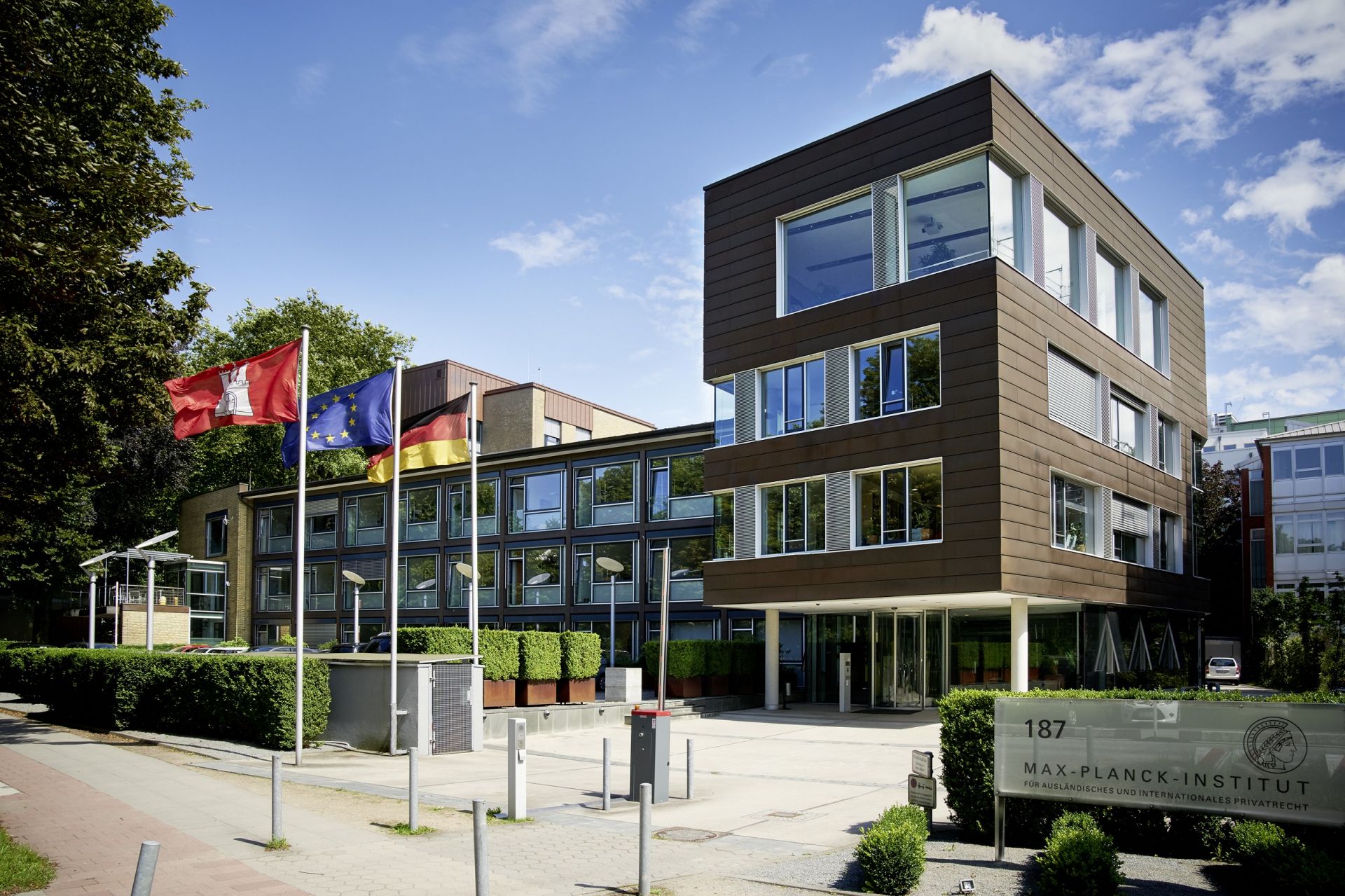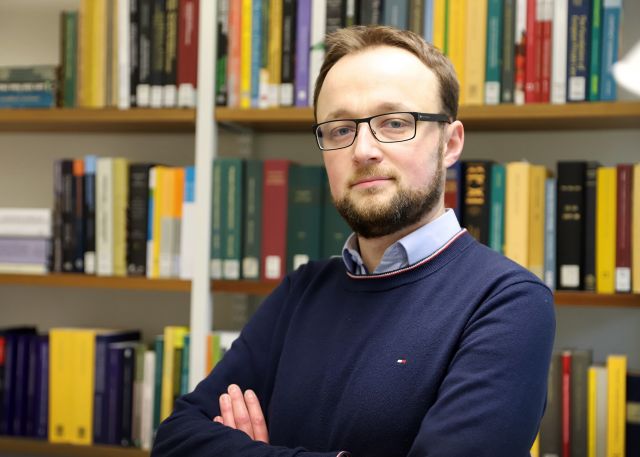The 495 winners of the last round of the PRELUDIUM call, targeted at researchers without a PhD, include nearly 40 foreigners who, thanks to NCN funding, will be able to develop their ideas in Polish research centres.
Science that leaves no-one behind
Iskandar Azmy Harahap will carry out a project that falls under the UN 2030 Agenda for Sustainable Development, which outlines an action plan to improve the quality of life for people all over the world and sets a number of goals that promise to “leave no one behind”.
Harahap is a PhD student at the Poznań University of Life Sciences and his project focuses on the impact of dietary isoflavones and probiotics on bone health problems, such as osteoporosis and low bone mass.
Bone calcium loss represents a major social and economic problem. It affects everyone, regardless of race and sex, but bone fractures begin to become more common in those over the age of 70. Current treatment recommendations for osteoporosis in post-menopausal women include hormone-replacement therapy and medication. While oestrogen supplementation allows bone mass to increase or be maintained sufficiently, it also elevates the risk of reproductive cancers. On the other hand, currently available drugs, such as bisphosphonates, calcitonin or denosumab, are not recommended for long-term use.
For this very reason, current treatment of postmenopausal osteoporosis may be inadequate and require additional support. Research data suggest that help may come from a diet that combines isoflavones and probiotics. “Probiotics may have clinical implications in the treatment and prevention of osteoporosis, while isoflavones are likely to mitigate postmenopausal symptoms”, the researcher explains. The results of his study may help find a way to maintain bone health by replacing supplementation with specific foods or safely reducing the dosage of drugs currently prescribed to post-menopausal women.
”Winning an NCN grant represents a great step forward in my research career. It is my hope that, thanks to PRELUDIUM, I will not only learn a lot but also contribute to addressing major domestic and global challenges”, Harahap emphasises.
The scientist won PLN 210,000 for a project entitled “DOBRY: [D]aidzein and pr[OB]iotic fo[R] health[Y]” Połączenie daidzeiny i Lactobacillus acidophilus w celu poprawy gospodarki wapnia i zdrowia kości” [““DOBRY: [D]aidzein and pr[OB]iotic fo[R] health[Y] bones.” Combining daidzein and Lactobacillus acidophilus to improve calcium metabolism and bone health”]
Green marketing: a new market trend
Green marketing is a concept studied by Elnur Nabivi from the University of Warsaw. The term applies to the marketing of products that are considered safe for the environment. “It covers the promotion not only of finished products, but also their packaging and any changes and modifications to their manufacturing processes. This is taken into account at all stages of product development”, explains the researcher.
Interest in ecology is on the rise and companies increasingly include environmental issues in their marketing communication. “Consumer beliefs and values are rapidly evolving, fuelled by environmental, social and political factors. Consumers are increasingly aware of issues related to the natural environment, sustainable development, animal welfare, manufacturing and labour conditions. The need for green marketing is also dictated by the increasing clout of social media”, he adds.
The most important goal of Nabivi’s project is to determine what type of environmental content published by companies on social media produces the greatest consumer engagement. The researcher will also look into the factors that encourage consumers to purchase products promoted by green marketing. He will analyse annual data on content posted by seven FMCG companies on Facebook and Twitter to identify the most engaging types of green marketing content in terms of likes, shares, retweets and comments.
The results of the study should tell us how to implement the ideas of green marketing in social media communication and provide more data on consumer expectations. “I want to know to what extent it makes sense for companies to implement green marketing strategies and to identify the chief factors that shape consumers’ buying decisions”, Nabivi emphasises.
Entitled “Wdrażanie Koncepcji Zielonego Marketingu Poprzez Działania w Mediach Społecznościowych" [“Implementing Green Marketing through Social Media Activities], his project was awarded nearly PLN 140,000 in funding.
A purely philosophical project
What is the ontological status of being? What is the essence of a fictional entity? Can a fictional being cause or alter something in the real world? These are but some of the questions asked by philosophers in the context of fictional entities that abound in literature.
Hicham Jakha from the John Paul II Catholic University of Lublin, who is particularly interested in contemporary analytic philosophy, will investigate Roman Ingarden’s solution to the problem of the existence of fictional entities. “My project is purely philosophical and draws mainly on literary criticism and aesthetics. I am trying to include the phenomenological ontology of Roman Ingarden in contemporary analytic ontologies of fictional entities”.
For Ingarden, a fictional being is first and foremost an intentional entity. It owes all of its features and its entire being to the intention and linguistic consciousness of the author. The fictional entity is initially dependent on the author who creates it, and later on readers who are able to grasp the meaning of linguistic expressions; as such, it is neither real, existing in time and space, nor merely mental, existing only in the mind. “Many contemporary analytic philosophers have already adopted certain elements of Ingarden’s ontology; my role will be to examine his vision of fictional beings with reference to the shortcomings of the analytic ontologies of such entities”.
This strategy allows certain problems that recur to be avoided in the analytic philosophy of fiction, which treats fictional beings alternately as either Platonic entities or mere artifacts.
Entitled ”Problem przedmiotów fikcyjnych w ontologii Romana Ingardena i metafizyce analitycznej” [“The Problem of fictional entities in Roman Ingarden’s ontology and analytic metaphysics”], the project was awarded more than PLN 66,000 in funding.
A history of the European spruce bark beetle
Spruce forests represent 6% of all forests in Poland. One of the worst pests which destroys thousands of trees of this species every year is the European spruce bark beetle.
Even though spruce trees can be found all over Poland, the populations of the European spruce bark beetle in the north and the south of the country are markedly different. The main objective of a project conducted by Anastasia Mykhailenko from the Jagiellonian University is to estimate how rapidly their genome accumulates mutations. To do so, the team will grow several families of the beetle in order to obtain genome sequences from parents and offspring and detect new mutations, which will then allow them to calculate the rate at which new alleles show up across the genome.
Mutation rate is one of the most important parameters in population genetics; it allows us to calculate the time at which a given species began to expand and determine how its size has changed over time. If we know the mutation rate, we can also present our calculations in the form of years and population numbers.
Bark beetle populations in the south of Europe differ genetically from those further up north. The same phenomenon can also be observed in Poland. Polish beetle populations living in the south of the country are genetically closer to southern European populations, while those identified in the north share more affinities with the Scandinavian region. “The genetic variation between these populations is rather low. The differences that we do observe, however, probably reflect the history of the species”, the researcher explains.
Coupled with the accurate timing of chromosomal inversions, the demographic history of the European spruce bark beetle will lay the groundwork for further research on the impact of changes in population size on genetic variation and the adaptation of the insect. “Our study may serve as an example for scientists studying other forest pests. Our mutation and recombination rate estimates should attract particular interest”, she adds.
The researcher won more than PLN 207,000 in funding for her project, entitled ”Tempo mutacji u kornika drukarza” [“Mutation rate in the European spruce bark beetle”]. If you want to learn out more about the insect, visit: https://genomicsofoutbreaks.com/
The National Science Centre has been supporting young researchers for many years. To serve as a principal investigator under a PRELUDIUM grant, the applicant must not hold a PhD degree (and does not even need to be a PhD candidate); the topic of the project may, but does not need to, be related to the subject of a future PhD dissertation. In the round that just concluded in November 2021, the NCN selected nearly 500 projects with a total budget of more than 77 million zlotys. Several other PRELUDIUM projects were discussed HERE. A new round of the call will be launched in March.


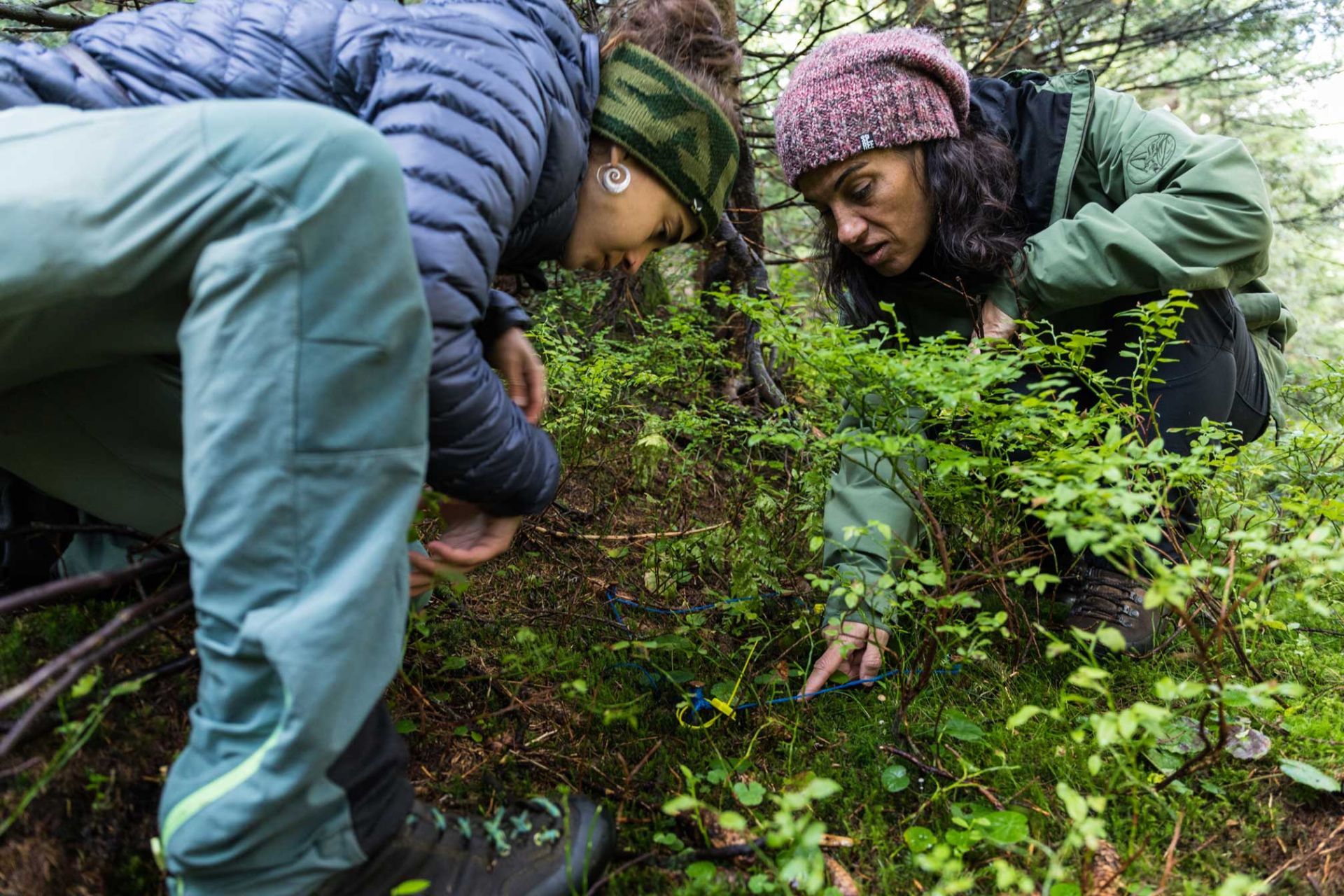
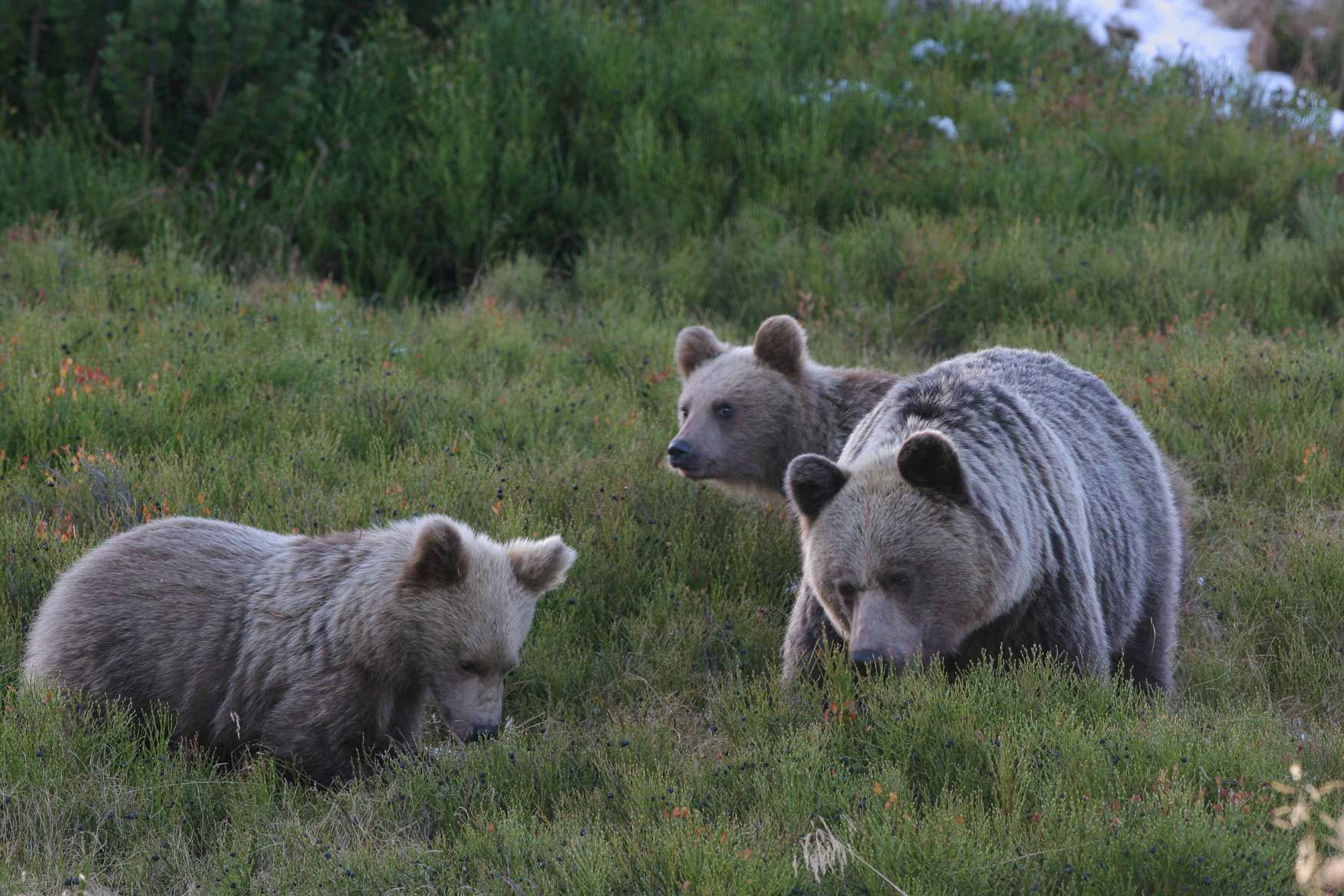
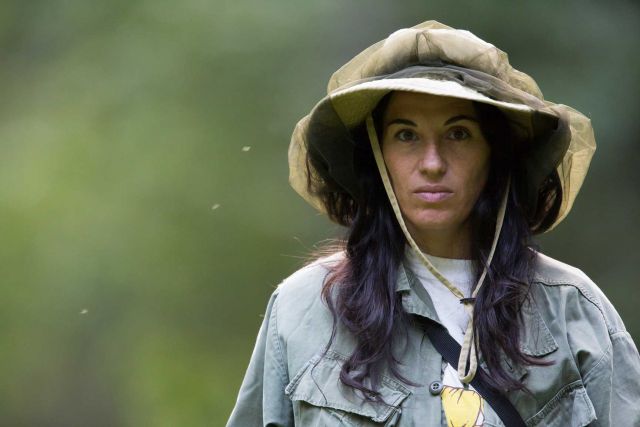
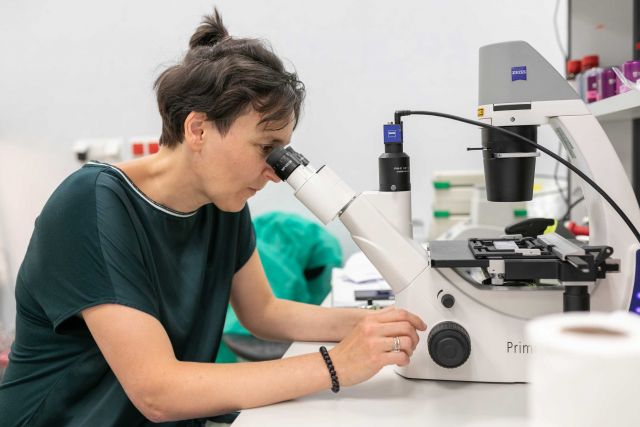
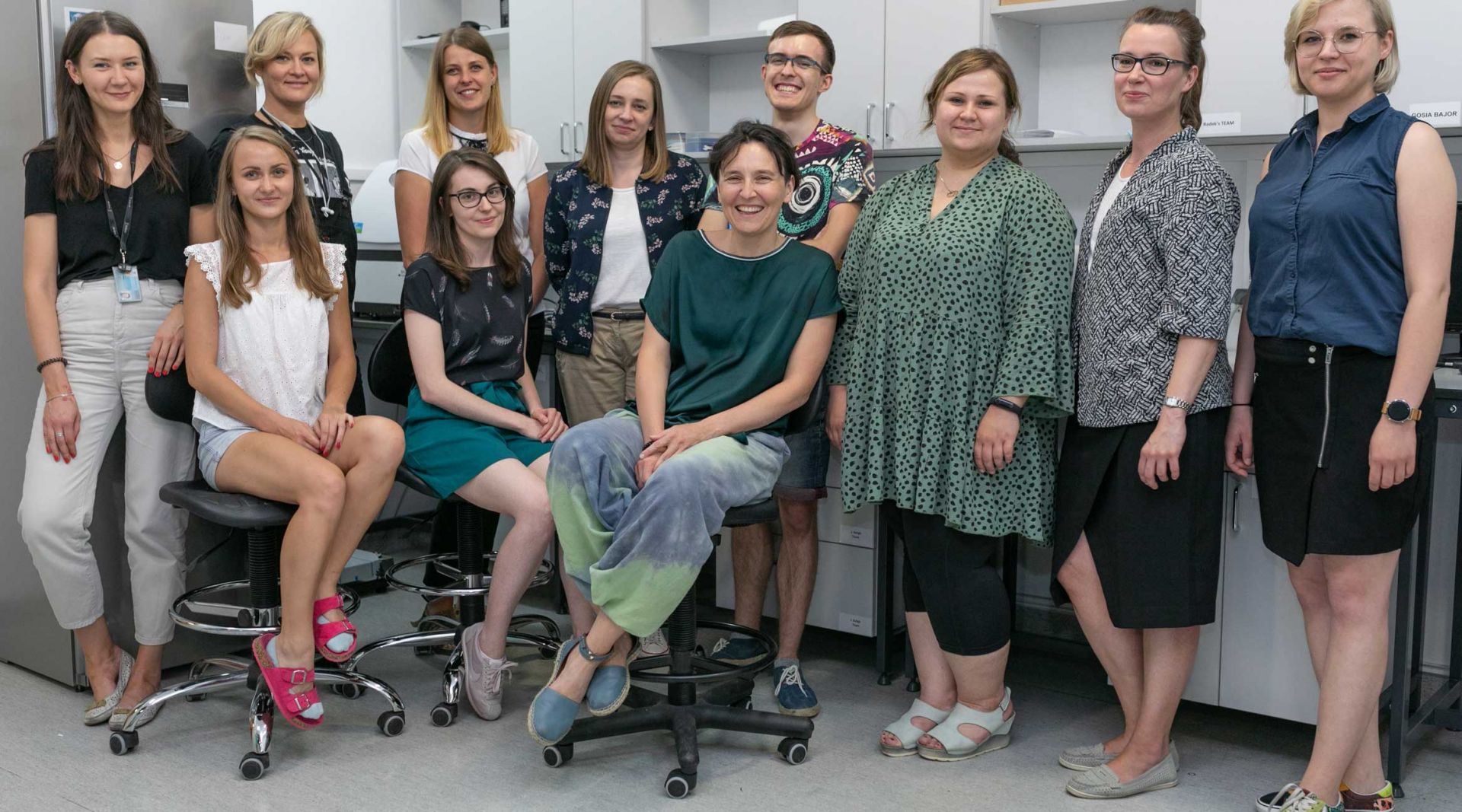
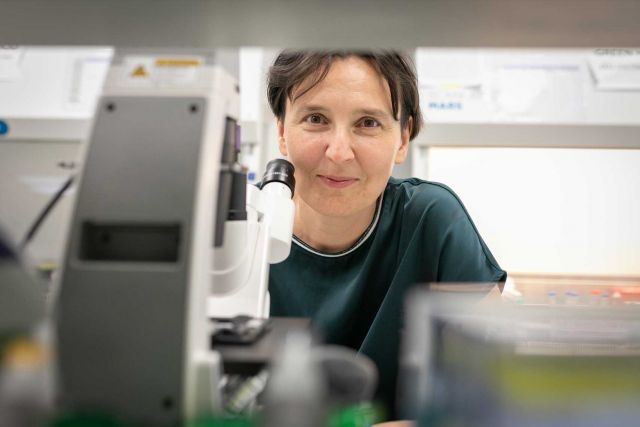
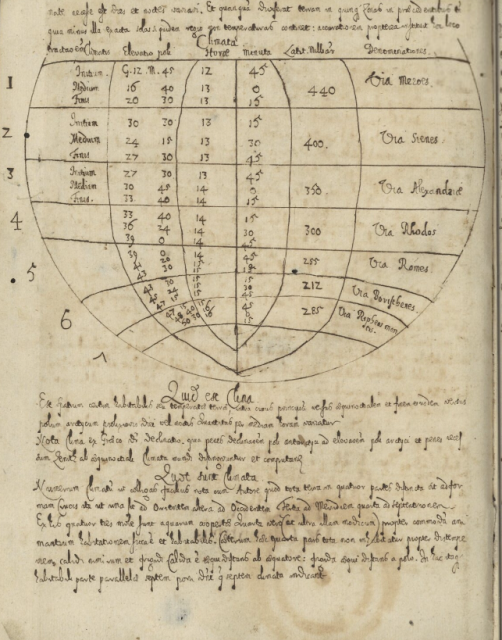
![Elucidationes in sphaeram Ioannis de Sacro Bosc [script by Jakub Kurzewski]. Archive of the Radziwiłł Family in Nieśwież; The Central Archives of Historical Record in Warsaw. Source: National Library of Poland](/sites/default/files/styles/xxlarge_1920px/public/inline-images/skrypt_jakuba_kurzewskiego_polona-popr.png?itok=IsXQIlP-)
